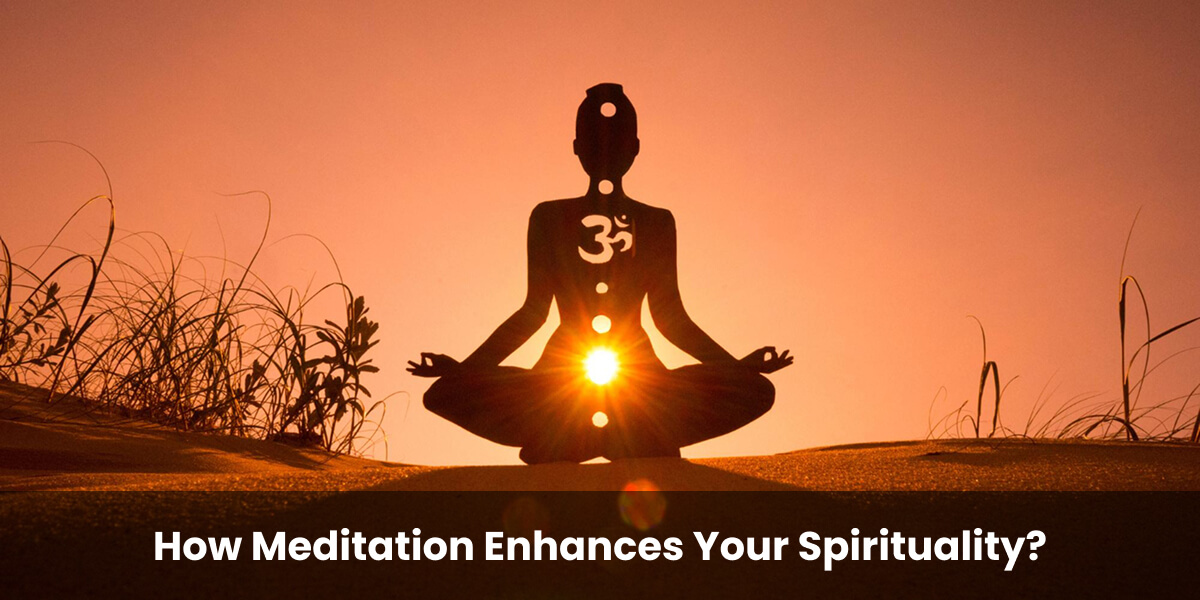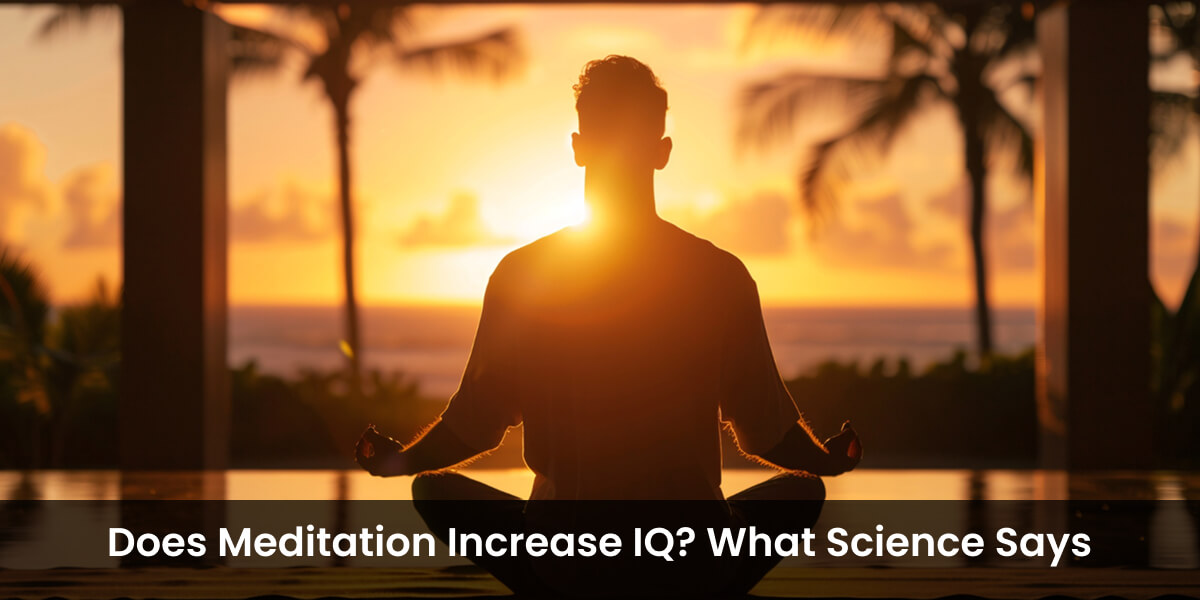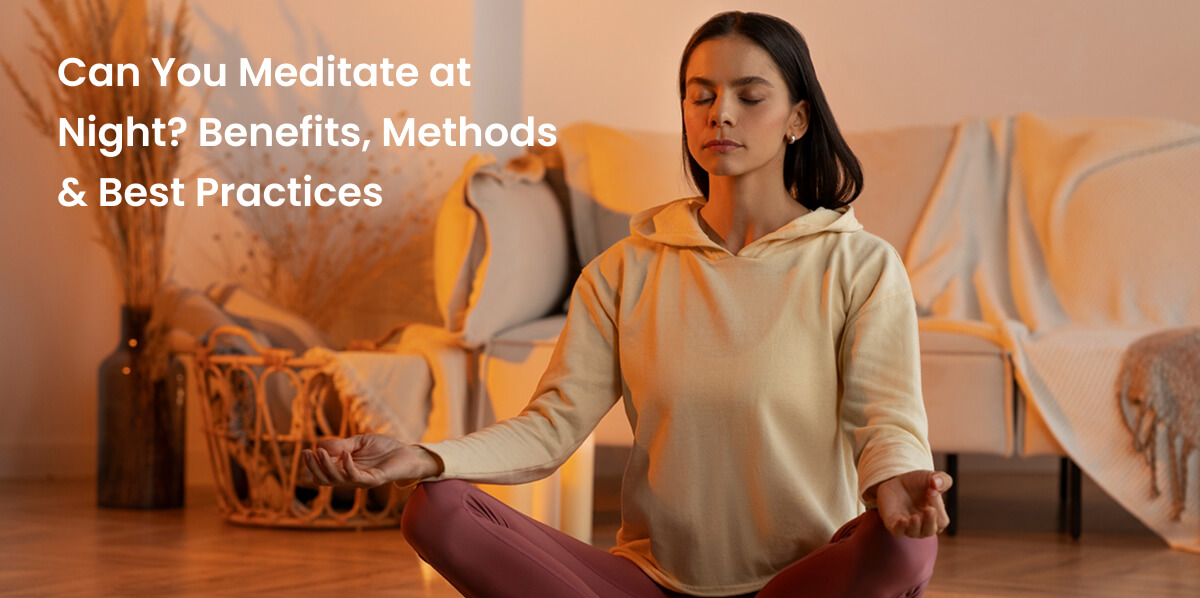We live in a very stressful world, and we are all looking to have peace, balance, and a sense of greater purpose in life. Science and technology are taking care of our material needs whereas meditation has moved on in the form of a timeless discipline that takes care of the soul. It enables us to take some time out, meditate and find connection with something bigger than us.
Spirituality is usually regarded as a process of self-discovery, meaning and association to the divine or the universe. Meditation just serves as a bridge which gives clarity, stillness and enhanced awareness to that journey. With regular practice, one is able to not only relax the mind but enlighten the spirit as well.
What is Spirituality?
Spirituality has nothing to do with religion or even rituals and that is it is a more advanced search of attaining the purpose of life, inner peace and calm with the universe or supreme power. It is an issue of leaving the material world and turning into the inner self.
Spirituality may simply be prayer and worship to one person and compassion, mindfulness or living true to self to another. In the proper spirituality is to recognise our purpose to ourselves, what we really are and to foster harmony with other life.
Related Blog: What Is Spirituality? Understanding Its Meaning and Importance
What is Meditation?
Meditation is the ability to bring clarity of mind, calm and focused mind through the art of training the mind. Millennia of practice across cultures have done it, as in Buddhist mindfulness, Vedic dhyana and contemplative prayer within Christianity.
The most basic approach to meditation is to sit and employ the breath or a mantra, and collect or watch thoughts without judging. Over the long-term it develops spiritual tranquility, psychological clarity and emotional stability. Even such a life art as relieving stress, growing concentration and so forth is justified with the help of a modern science such as meditation.
The Connection Between Meditation and Spirituality
Spirituality is involved in meditation. Though spirituality aims at a better meaning and inner connection, meditation offers the channel to get access to it. Calming the mind makes it possible to go deeper through meditation and establish a better communication with the higher or divine self.
Daily practice of meditation helps to go beyond the superficiality of thoughts and access states of deeper stillness. It is in this quiet that the foundations of spiritual truth can be found- it can aid us in experiencing compassion, gratitude and unity of being with life.
Key Ways Meditation Enhances Spirituality
Spirituality is advanced through meditation in very significant ways. The following are the most effective:
1. Deepens Self-Awareness
Through meditation we get the chance to watch our thoughts, feelings and behaviors without judgment. This increased self-knowledge brings in a sense of clarity of what we are or why we act as we do. On the spiritual level, it aids us in removing outer layers and thereby allows us to reach the inner self.
2. Develops Self-Peace
The mind acquires repose in silence. Meditation enhances the feeling of calmness with the removal of clutter in the mind and emotional disturbance. It is such peace which makes us a spiritual foundation to act as the patient and wise counsel to life.
3. Fortifies Intuition to God/Higher Self
Since paths through nature are usually overgrown, it is interesting to see how many describe meditation as a means of getting more in touch with God, the universe, or their higher self. As the sound and clutter of the world are silenced, meditation creates an opening through which spiritual presence, intuition and guidance can be found.
4. Broadens the concept of Compassion and Love
Frequent exercise mellows the heart, and opens empathy. This is critical as it pertains to the spiritual being since love and compassion are frequently termed as the supreme spiritual utterances. Meditation opens our eyes to perceive others as an aspect of a bigger picture.
5. Fosters Ego-detachment
Getting rid of the egoistic needs that rule spirituality is one of the major challenges of spirituality. The constant need to cling on to thoughts and roles is broken by meditation where one learns how to simply let things go. It is by such detachment that one can be humble, accepting and yield to higher wisdom.
6. Enhances Deviousness and Precision
Meditation enhances the internal direction. With spiritual practitioners, the answer readily comes up when they are still. This instinctive simplicity enhances the faith in the natural course of nature and boosts its spiritual beliefs.
Related Blog: How to Improve Spiritual Growth: A Step-by-Step Guide
FAQs About Meditation Enhancing Spirituality
Meditation provokes numerous questions, particularly, those who are interested in its implications in terms of spiritual development. Below are elaborate responses that demystify some of the doubts as well as provide answers that will help you comprehend the practice to a deeper level.
Q1. What frequency is good to meditate spiritually?
The frequency of meditation does not have a strict rule, however, it is important that they are consistent. Even daily brief sessions of 10-20 minutes have the capacity to manifest marked shifts in awareness, lucidity and emotional stability. To mature spiritually it is more important, even to start with those few moments of meditation, than to meditate hours at a time occasionally.
Most spiritual gurus recommend taking baby steps and adding time as you become more practised. As you persist in meditating daily, the practice can turn into a way of life or a lifestyle; unlike before, daily meditation when practiced as a habit takes a position of a natural occurrence; in other words, connecting with your higher self and staying balanced in your everyday world becomes harmonious and natural.
Q2. Is meditation safe to all?
Yes, meditation can be broadly safe to individuals regardless of ages and background. Indeed, it is one of the most inclusive forms of practices since it does not need some special equipment, physical strength, or a belief system. Nevertheless, novices might have trouble sitting in a quiet place and controlling their thoughts and or bottled up emotions that might come out during the period of meditation. This is normal and usual and that is in the process of finding oneself.
Professional help or courses can be more effective when the person experiences bad anxiety, trauma or mental issues. When done properly, meditation can be safe, healthy and powerfully life changing to all people; with the help of guided meditations, breath work, or in a group setting.
Q3. Is it possible to substitute religious activities with meditation?
Religion and meditation are complementary to each other. Religion may seem to make sense, ritual life, and a sense of belonging as far as community and tradition goes. Meditation on the contrary is more of an inward journey and direct awareness of self or the divine consciousness. Although meditation may help you in the context of your spiritual path, it does not necessarily have to substitute religion.
Actually, meditation is incorporated in the practices of many individuals as religious activities. As an illustration, prayer will be more focused and passionate when it is enhanced with meditation. A Christian may meditate prior to a prayer, a Hindu may meditate and include accompanying mantra chanting, and a Buddhist may meditate as one of the center spiritual practices. Thus, through meditation, religious faith is not put to an end, but it is reinforced.
Q4. What is the best form of meditation spiritually?
The most appropriate form of meditation will be based upon the personality and spiritual objectives. In case you want to develop awareness and stay in the present, mindfulness meditation is the right option. Mantra meditation or transcendental meditation can speak to you when you are in pursuit of deep focus and inner stillness. To the persons who desire to develop compassion and love towards other living beings, loving-kindness (Metta) meditation is just beautiful.
Finally, there is no stand-alone approach. The most important part is to select a practice you feel you would like to do and that it means something to you. In the course of time you can allow your direction to change in spiritual growth and test several types of meditation out creating a play that merges you with the higher self or the divine in the manner you feel best fits you.
Conclusion
The exercise of meditation is not some kind of relaxation game but a superb mode to spiritual understanding. It has the ability to deliver knowledge to the silence of the mind along with arousing self-understanding and make us paddle beyond the noise of our daily life finding the truth in ourselves. Whether practiced just a few minutes per day or as part of some more extensive spiritual practice, meditation slowly transforms the manner of our thinking, feeling and relating ourselves to the world around us.
In a simplest form, spirituality is nothing but a quest to meaning, tranquility and commonality with the divine or higher self. Meditation proves to be the space through which this kind of seek is made possible. It awakens clarity, tenderness and a sense of completeness with all beings and is the faith that the true spirituality does not begin outwardly, but outwardly.









Post a Comment